DARA Big Data; Supporting a new generation of African data scientists
Meet the Department Welcome to Physics 4 May 2021
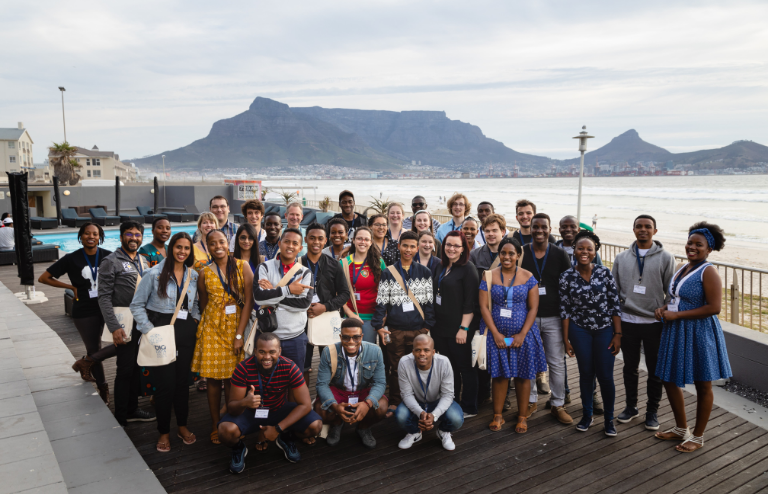
The world is in the throes of what is known as the 4th Industrial Revolution – or 4IR. This data driven economic boom normally refers to the rapid advance of AI technologies, robotics and the billions of devices connected to the ‘Internet of Things’, but big science experiments – such as the Square Kilomere Array and the Large Hadron Collider – are right at the cutting edge of the big data revolution.
The DARA Big Data project was born in 2017 out of an identified need for high-level applied data science skills training across the African countries involved in building the SKA (Square Kilometre Array) Telescope. The SKA will be the world’s largest radio telescope when completed and will be hosted by South Africa, which leads a partnership of other African countries, including Botswana, Ghana, Kenya, Madagascar, Mauritius, Mozambique, Namibia and Zambia, who will also participate in this world leading scientific facility.
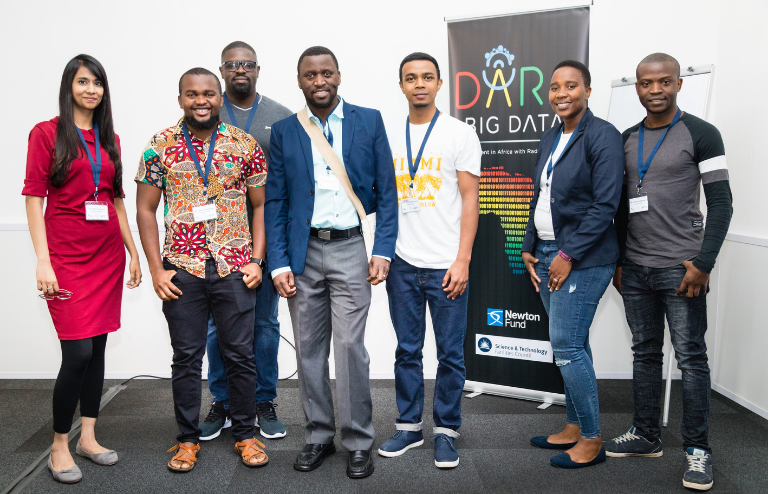
DARA Big Data’s remit is to support the research communities in those countries by equipping more students with the skills to translate the huge amounts of data that will be produced by the telescope into scientific outputs. However, these same skills are also applicable in many other areas; training covers not only astronomy but also agriculture, medical sciences and data-informed policy-making. The project is led by Prof Anna Scaife of the Jodrell Bank Centre for Astrophysics (JBCA), who said that she was inspired by ‘the talent and ambition of the students that I met while tutoring on various radio astronomy training programs in different African countries. The students could already see the wider benefits of the skills they were acquiring, and I wanted to build a program which reflected that.’
It is a sister program to the DARA Project (led by Prof Melvin Hoare at University of Leeds), which was set up 2 years earlier to train African students in all aspects of astronomy. The projects, jointly funded by the UK Newton Fund and the South African Department of Science & Innovation, work closely with each other and with key partners in South Africa such as the South African Radio Astronomy Observatory (SARAO), the International Astronomical Union Office of Astronomy for Development (IAU-OAD) and the Inter-University Institute for Data Intensive Astronomy (IDIA).
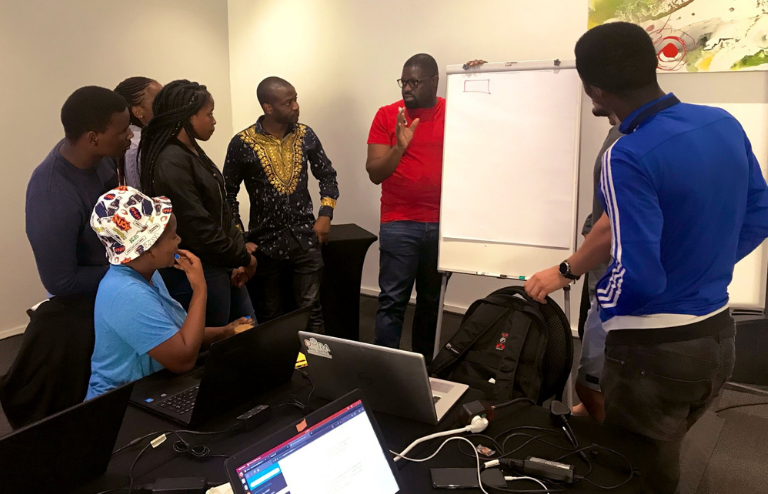
Since its inception DARA Big Data has run hackathons and intensive workshops across Africa for almost 250 students. The project has also funded 18 studentships for African students at Masters and PhD level, hosted at universities across the UK including Manchester. Trainees get exposure to industrial opportunities and key figures in both industry and academia. Forming a strong pan-African network between the students is an important component of the project and it is hoped that this network will continue to develop.
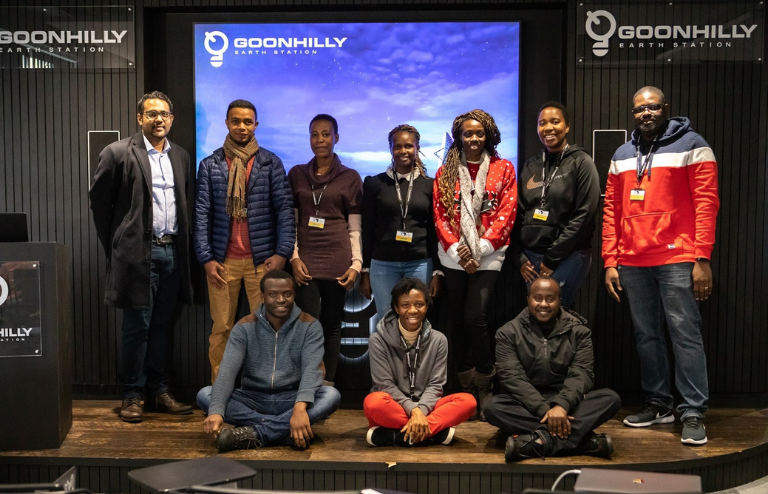
One of the challenges for the project is to raise awareness of data science as a viable career option for women and to increase their participation in it. DARA Big Data training at all levels tends to receive far fewer applications from women than men. Despite this, efforts are made to balance gender as evenly as possible for both studentships and events and female participants tend to do extremely well. It is worth noting that the last 3 hackathons only had around 30% female participants, yet on average women made up almost 50% of the top placed teams.
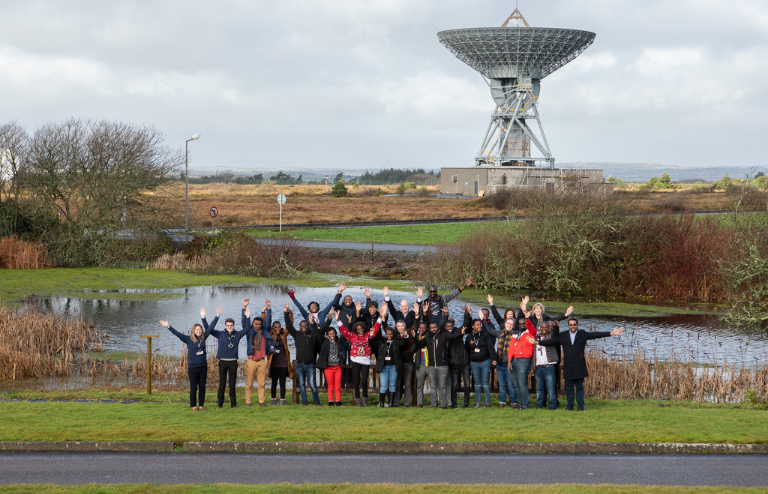
The project’s impact is already being felt: Takalani Nemaungani, Acting Chief Director of Astronomy at the Department of Science & Innovation, said that the DARA Big Data project is ‘testimony that astronomy can contribute to the broader societal needs of the continent. I am grateful that our partnership with the UK, through the Newton Fund and the DARA initiative, is equipping a new generation of entrepreneurs, scientists and professionals.‘
We look forward to seeing just what the incredible potential of big data and machine learning will do for Africa in the exciting age of SKA and 4IR.
Words: Linzi Stirrup
Find out more;
DARA Big Data student profiles
SARAO Women in Data Science report – this report used DARA Big Data as a case study
Watch: Nikhita Madhanpall – Data Science Skills Development with Big Data Hackathons
applied data scienceastronomybig dataDARAdata sciencehackathonmachine learningpolicyradio telescoperesearch communitiessquare kilometre arraytelescopeWomen in PhysicsWomen in STEM


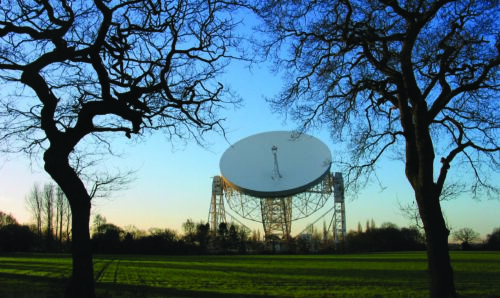

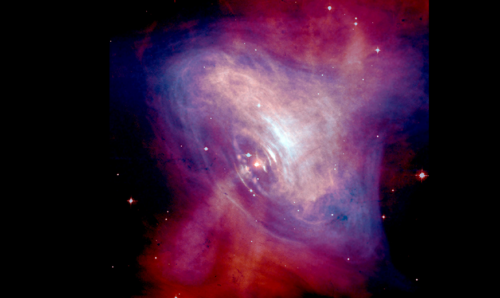
Leave a Reply